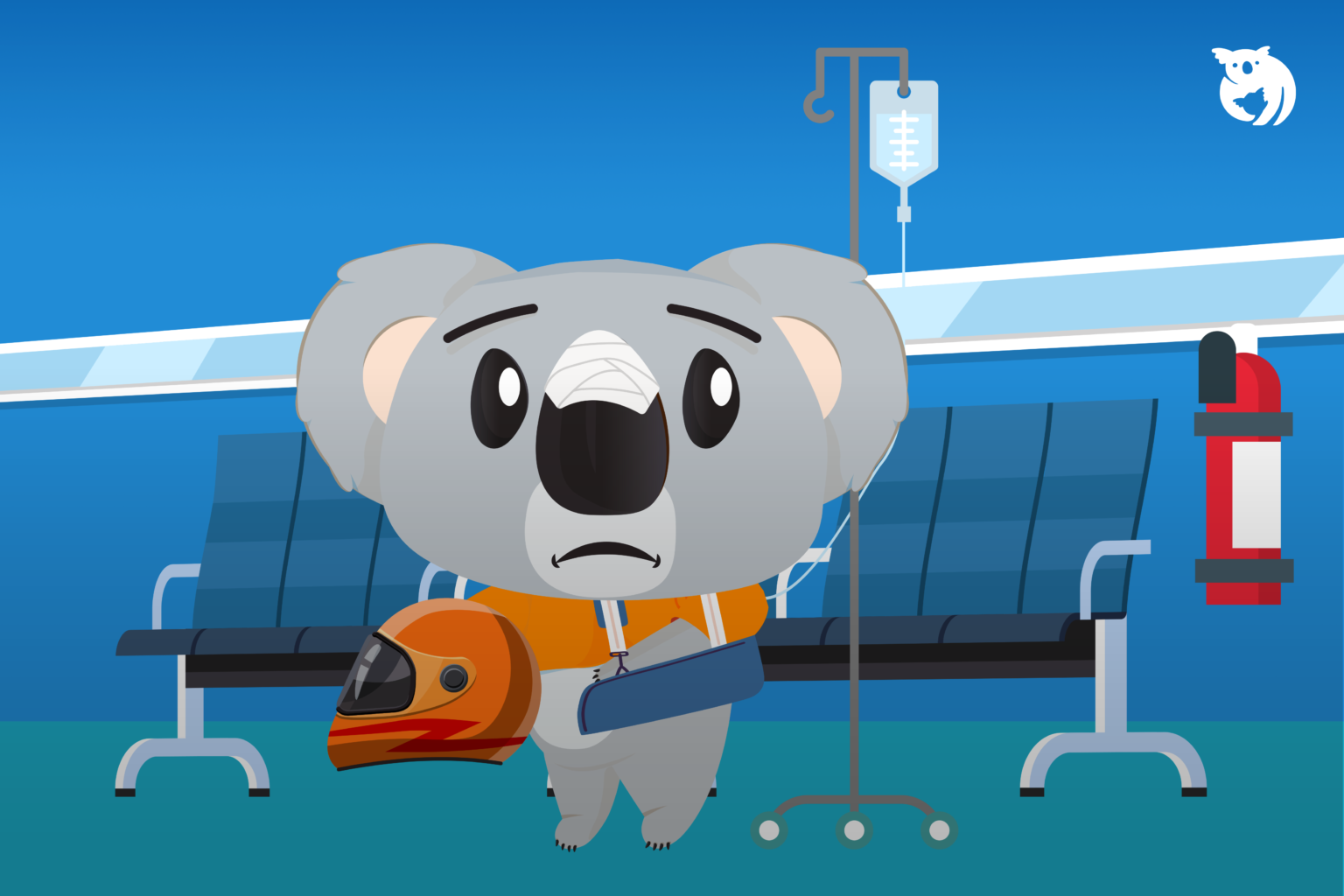Health and medical insurance policies generally do not cover all types of diseases. There are certain exceptions or diseases not covered by insurance, especially chronic or critical illnesses. Typically, insurance companies in Malaysia list some diseases that are not covered by health insurance – you can refer to your insurance policy for more information.
Health and Medical Insurance: Does This Insurance Cover All Types of Diseases?
In essence, health or medical insurance plays an important role in protecting your finances, particularly related to treatment costs, hospitalization, and medication.
However, this insurance does not protect policyholders in all circumstances. There are several types of diseases that are not covered by health insurance – as mentioned above, there are exceptions for certain chronic diseases. Some of the diseases not covered by medical insurance include:
- Heart disease;
- Kidney disease;
- Physical disability;
- Mental disability;
- Cancer;
- Stroke;
- Coma.
Although there are exceptions for diseases not covered by insurance, it does not mean that you cannot receive any benefits. Policyholders or dependents can still enjoy benefits from health insurance policies.
Compensation will be paid by the insurance company to cover treatment and medical costs depending on your coverage plan. Unlike critical illness insurance that provides lump sum compensation if diagnosed with a critical illness, regardless of hospital treatment costs.
List of Diseases Not Covered by Health and Medical Insurance in Malaysia
In essence, it is important for you to understand your insurance or takaful plan. You need to know the diseases covered or not covered by insurance to help you better understand your policy. Moreover, it can also help you choose a suitable medical insurance or takaful protection plan for yourself.
Here is a list of nine (9) diseases not covered by insurance for your reference and guidance:
1. Pre-existing Diseases
If you have any pre-existing diseases before subscribing to an insurance or takaful plan, it is likely that the insurance company will not cover these diseases. This means that the costs related to pre-existing conditions will not be covered or protected by insurance or takaful.
For example, if you undergo treatment for the removal of a cyst. After the treatment, you decide to take out an insurance policy. There is a possibility that any diseases related to the cyst, either directly or indirectly, will not be covered by insurance.
On the other hand, individuals who are healthy when they take out the policy – any diseases diagnosed after the policy becomes effective will be covered by insurance depending on your insurance policy.
2. Abnormalities or Congenital Disabilities
Congenital disabilities (or congenital disorders) refer to diseases or conditions experienced since birth. They can result in physical, intellectual, or developmental disabilities.
Any treatment or surgical procedures related to congenital disabilities, including hereditary diseases, are categorised as diseases not covered by insurance.

3. Cosmetic Procedures
Any cosmetic procedures such as plastic surgery, dental treatment, eye treatment, circumcision, or any other related treatments are among the diseases not covered by insurance.
However, they are usually considered by insurance companies depending on specific situations or cases. For example, if a tooth is broken due to an injury or accident, the treatment costs are usually covered by the insurance company.
4. Tourism Vaccination
Some countries require you to receive certain immunisation shots or vaccinations before you can enter their territory. Vaccination for this purpose is also not covered by insurance.
If you want to get vaccinated for travel purposes, such as going abroad on vacation, you will need to bear the cost yourself as it will not be covered by insurance companies. However, this may vary depending on your insurance policy. For more information, you can refer to your insurance company.
5. Waiting Period
In general, not all benefits will be covered by insurance companies as soon as the policy is enforced. Some conditions require you to go through a waiting period, which can be 30 days, 60 days, or 120 days.
Any health issues diagnosed during the waiting period, except for accidents, are likely to be rejected by insurance companies. For example, specific diseases listed below require a waiting period of 120 days from the policy’s effective date:
- Heart attack
- Head injury (traumatic brain injury)
- Stroke
- Cancer
- Kidney failure
- Major organ transplant
- Paralysis
- Multiple sclerosis (autoimmune neurological disease causing inflammation in the central nervous system)
- Fulminant viral hepatitis
- Coma
- Blindness
- Heart valve replacement
- Loss of limbs (hands and feet)
- Aortic surgery
- Alzheimer’s disease
- Hearing loss
- Loss of speech ability
- Burns
- Terminal illness (incurable or untreatable diseases)
- AIDS from blood transfusion
- Motor neuron disease
- Parkinson’s disease
- Chronic liver disease
- Chronic lung disease
- Aplastic anemia
- Muscular dystrophy (genetic disorder weakening the body’s muscles)
- Poliomyelitis (paralyzing viral infection)
- Bacterial meningitis
- Benign brain tumor
- Encephalitis
- Full-blown AIDS
- Apallic syndrome
- Brain surgery
- Chronic coronary artery disease
- Coronary artery disease requiring surgery
- Pulmonary arterial hypertension
It is important for you to know the waiting period for each category of diseases. Insufficient waiting periods can result in your insurance claims being rejected or categorised as uncovered diseases.

6. Legal Violations
Furthermore, if health problems arise from activities that violate the law, they are also considered as uncovered diseases by insurance companies.
For example, if you participate in illegal racing and are involved in an accident, the treatment costs will not be covered by insurance companies. Additionally, insurance companies do not cover diseases resulting from drug abuse.
7. New Medical Technologies and Off-Label Prescription
With the advancement of modern medical technology, various procedures, treatments, or new drugs have been developed to help treat specific diseases. Any attempts involving new treatment technologies, especially those still under research, are unlikely to be covered by insurance.
Moreover, treatment procedures or the use of any drugs without a doctor’s approval or off-label prescriptions will not be funded or covered by insurance.
8. Pregnancy
Claims related to the costs of childbirth, pregnancy, miscarriage, or complications due to pregnancy are also categorised as uncovered diseases by insurance companies. Unless you have specific additional protection related to prenatal insurance or others.
9. Involvement in Extreme Sports
Some insurance companies will not provide compensation in case of permanent disabilities resulting directly or indirectly from involvement in:
- Professional extreme sports such as scuba diving, motor racing, and air travel (except as a crew member or passenger on licensed commercial aircraft)
- Dangerous activities such as bungee jumping, parachuting, or skydiving.

Optimize Your Health Insurance Coverage with Qoala Today
We hope this information helps you better understand your medical and health insurance coverage. Be aware of diseases covered and uncovered by insurance to avoid any difficulties when making claims.
If you have any inquiries or plan to get health insurance or takaful, you can visit the Qoala website for further information.
Qoala is the best insurance platform in Malaysia approved by Bank Negara Malaysia. It compares different medical insurance plans to help you find suitable health and medical insurance plans that meet your needs.

 EN
EN
 MY
MY








